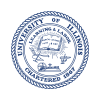Survey: Spam will beat Bill Gates
A survey of IT security professionals conducted at the Infosecurity show in London this week revealed that more than 80 percent of people do not think that Bill Gates' pledge to eliminate spam within two years is realistic.
In June 2003, the Microsoft chairman called for cooperation between government and corporations to fight the spammers. But Gates was branded hypocritical by anti-spam organizations because they said that Microsoft was only focusing on reducing the amount of spam received, rather than the spam sent by its users and servers.
John Cheney, chief executive of e-mail security firm BlackSpider Technologies, which conducted the survey, said the results show that the industry doesn't perceive Microsoft as a security authority, despite its chairman's enthusiasm for the task: "Spam isn't going to go away overnight and people don't think that Bill Gates is the right man to make it happen. It is going to take a combination of technology, legislation and a change in working practices," he said.
The survey also found that 38 percent of respondents didn't believe that the EU anti-spam directive would have any success in reducing unwanted e-mails. This is not a surprise because research has shown that the majority of spam comes from outside the EU and most countries have yet to implement the legislation.
Cheney said he was surprised that almost 40 percent of people thought the law, which bars unsolicited e-mails from being sent to only consumer e-mail addresses, would make a difference: "Spammers don't see any difference between a business e-mail addresses or a consumer e-mail addresses," he said.








































































